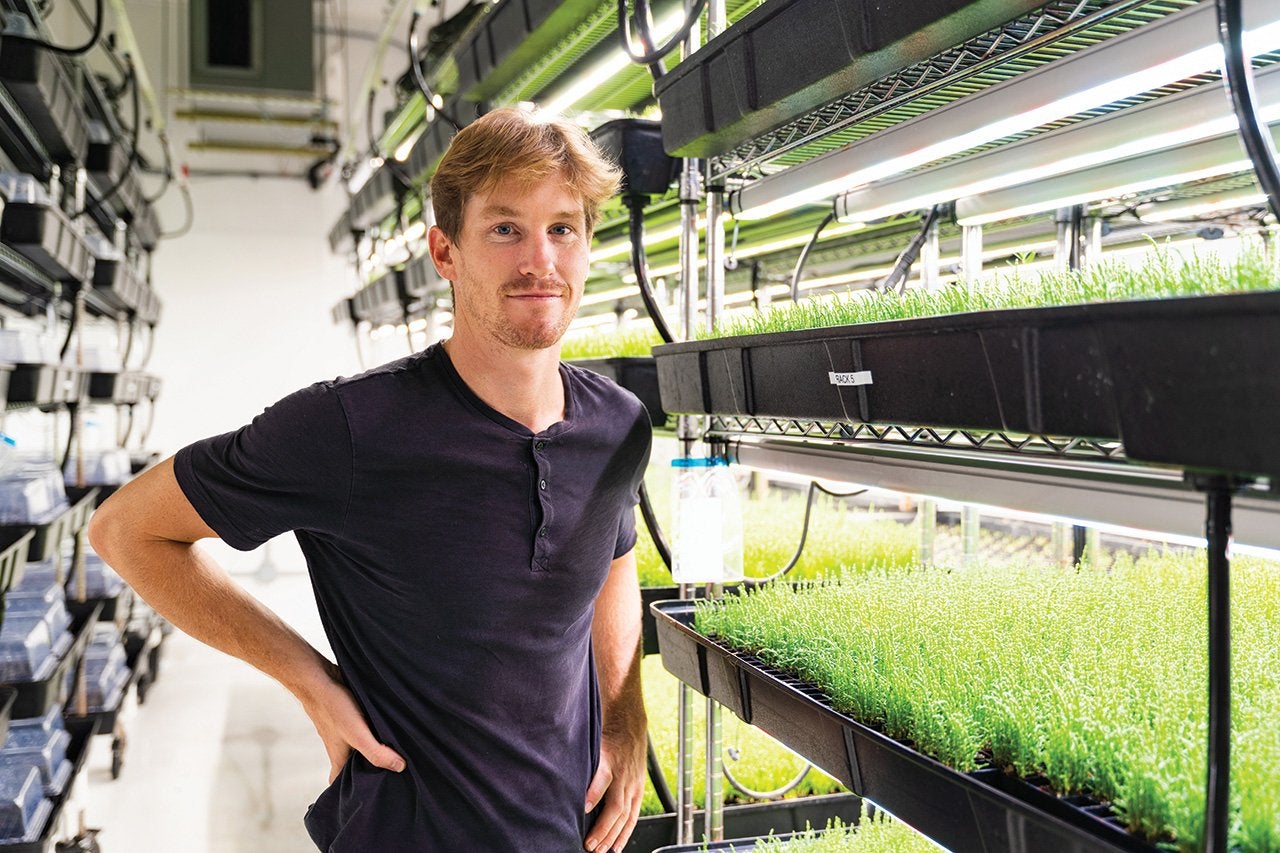“I grew up calling them sea pickles, but there are a bunch of names, like sea beans, salt daddies and Gatorade grass,” says Sam Norton ’16 (M.S. ’18).
Call it what you will, Salicornia, which grows in salt marshes and on beaches, is one of the most salt-tolerant terrestrial plants in existence, and it’s at the root of what eventually became Heron Farms – Norton’s Charleston-based, award-winning company. As the proprietor of what might be the world’s first indoor vertical saltwater farm, he grows sea beans year-round in a warehouse without any natural sunlight or fresh water, and it’s garnering him national recognition, including on the Forbes 30 Under 30 food and drink list and in Smithsonian magazine.
Sea beans have numerous nutritional benefits, and working closely with chefs was an important part of the product-development process. “Most chefs told us that they were using our sea beans as a salt alternative or like an alternative to finishing salt,” says Norton. “We listened and stopped thinking of it as an alternative to produce and more of an alternative to salt.”
Not only could sea beans help people reduce their sodium intake, but they could also help with climate change by making coastal ecosystems more resilient in the face of rising sea levels. Not to mention their potential as a biofuel. That’s right, sea beans are not only used in fine dining establishments, but Boeing is conducting research to use them as a renewable, environmentally friendly source of jet fuel.
But Norton will be the first to tell you that success doesn’t happen overnight. Building Heron Farms took years of perseverance and wouldn’t have happened without the master’s in environmental science program at the College. “The needle would never have moved without Dr. McGlinn’s support,” says Norton, referring to biology professor Dan McGlinn, who provided lab space to conduct research. Also instrumental: classes with Mark Long, professor of political science, and mentorship from Wesley Burnett, associate professor of economics.
Norton’s ability to think laterally across the liberal arts was also beneficial to his success.
“By the time he took his political science capstone [as an undergrad], where he began researching pieces of what now is Heron Farms, he was firing on all cylinders,” says Long.
At Heron Farms there is no slowing down when it comes to sustainability. As sea levels rise, Norton works to restore one square foot of marshland for every pound of sea beans sold.
“We’re excited to be pioneers in what may be a growing industry,” says Norton, who encourages future entrepreneurs to stop planning and start doing.

Alumni founded business Heron Farms aims to create sustainable agriculture and restore marshlands. (Photos by Mike Ledford)




